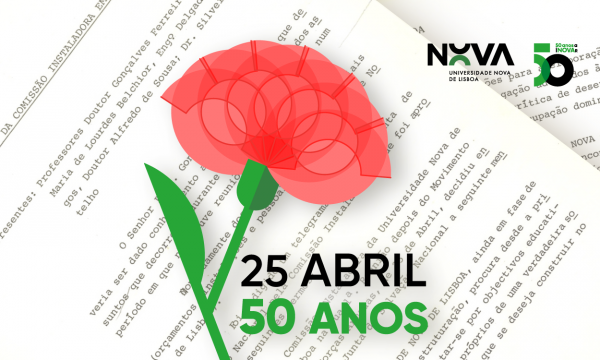Five days after the 25th of April 1974, the Founding Committee of the NOVA University of Lisbon approved the sending of a telegram to the Junta de Salvação Nacional (as for National Salvation Board), congratulating it on finding in the programme adopted by this provisional government body “the general lines of the service it proposes to offer the country”. He also points out that NOVA “sees the widest perspectives for its action and expresses to the J.S.N. its adherence to the principles it proclaims and defends”.
Signed by Professor Doctor Gonçalves Ferreira, Doctor Maria de Lourdes Belchior, Eng. Delgado Domingos, Doctor Alfredo de Sousa and Dr Silveira Botelho, it states that: “The NOVA University of Lisbon, still in the process of structuring and installation, seeks from the outset to be guided by educational and scientific objectives typical of a truly democratic society that we wish to build in the country”.
This document, which belongs to the archives of the NOVA University of Lisbon, marks the university’s position on a day full of strong emotions – five days and five nights after the dawn we had waited for so long, that whole, first and clean day, April 25, 1974, the day before May 1, Labour Day, declared a national holiday, would be marked above all by the arrival of the exiles in Lisbon: On the same Air France flight, the general secretary of the Portuguese Communist Party, Álvaro, Cunhal, the musicians José Mário Branco and Luís Cília and the future archaeologist Cláudio Torres returned.
Moreover, as the 30 April edition of Diário de Lisboa, which proclaimed in its headline a country “on the road to democracy”, pointed out, support for the J.S.N. was already beginning to emerge from the most diverse representatives of Portuguese society – from the Portuguese Society of Authors to the hundred and fifty scientists from the Gulbenkian Institute of Sciences, including the immense mass of students, who announced their “unequivocal adherence to the movement”.

